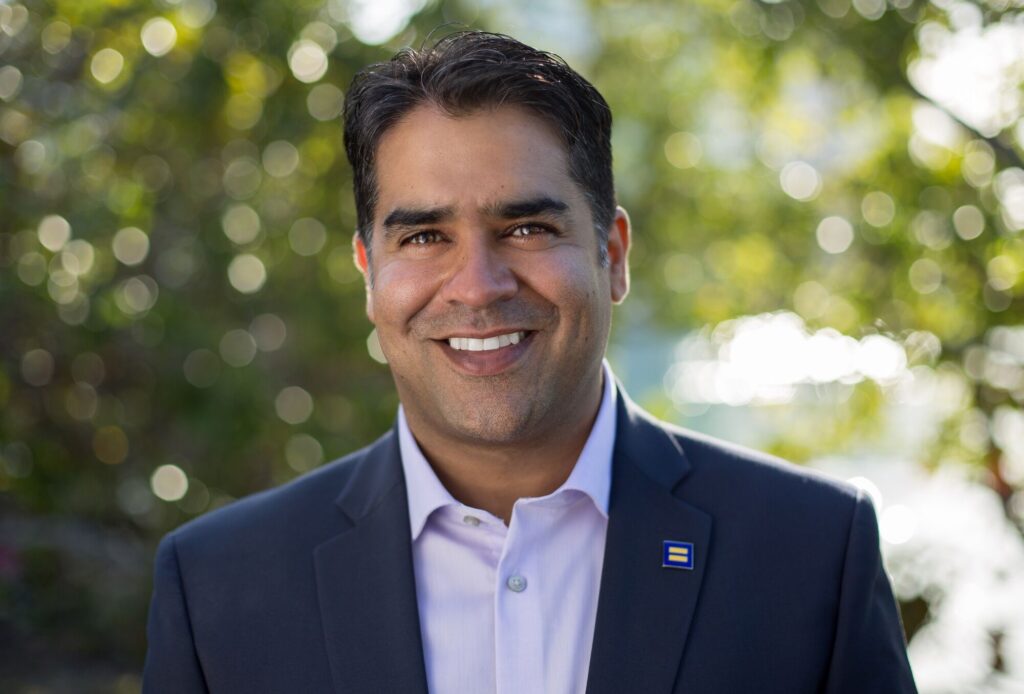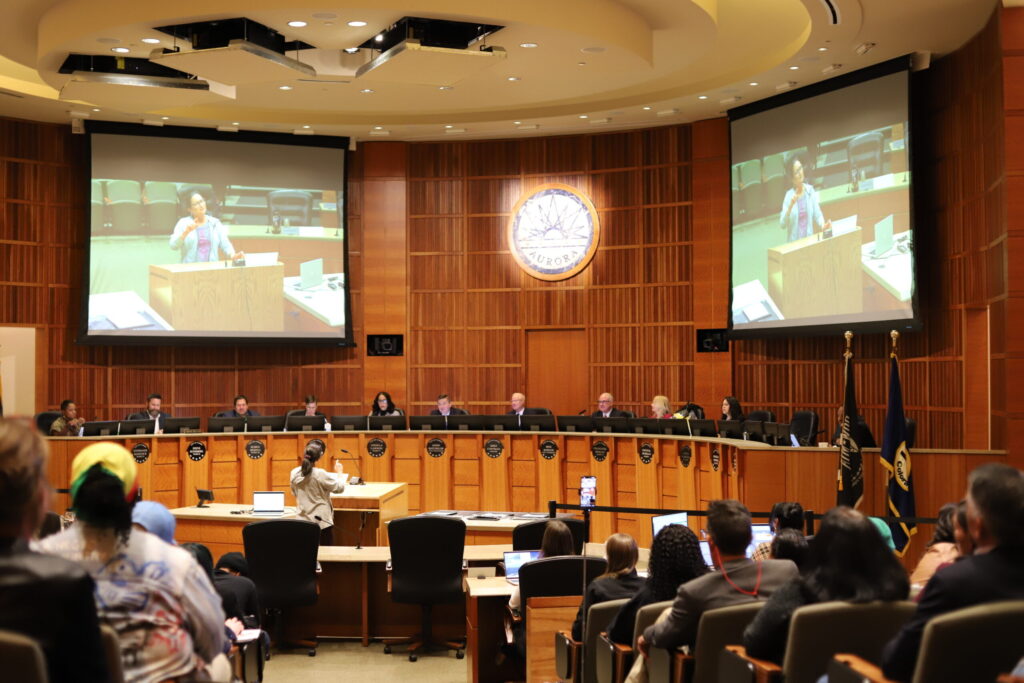CenturyLink files suit against PUC over funding mechanisms
A deal to deregulate CenturyLink and get broadband services into unserved areas has hit a snag: the Public Utilities Commission.
CenturyLink filed a lawsuit against the PUC earlier this month, challenging the way the agency decided to allocate funds tied to two of five telecommunications reform bills passed by the General Assembly in 2014.
The bills are House Bill 14-1328, which allows for transfer of funds from the state’s High Cost Support Mechanism (HCSM) into a Broadband Development Fund (BDF); and HB 14-1331, which requires the PUC to determine if there are areas of the state that now have effective phone competition and service. The BDF would provide financial assistance to telecommunications carriers that provide broadband access in unserved areas of the state.
On January 2, CenturyLink filed a lawsuit against the PUC in Denver District Court claiming the PUC violated a March 2014 agreement made between the PUC, CenturyLink and the Office of Consumer Counsel. The lawsuit claimed the PUC made decisions later in the year that violated the March agreement and also may violate the telecom statutes passed by the General Assembly.
The HCSM is capped at $54 million, and goes to telecommunications carriers that provide voice service (landlines) in high-cost areas around the state. The money comes from a 2.6 percent surcharge paid by all carriers that operate in Colorado and that provide local voice service. That surcharge can be passed on to customers, either as a separate line item or as part of the rates charged by the carrier.
CenturyLink, which owns most of the landlines in the state’s high-cost areas, was to receive $47.5 million from the HCSM fund in 2014 and is slated to receive the same in 2015, according to the PUC’s December 1, 2014 report on the HCSM.
But the PUC, in order to fund the BDF, decided to take $3.3 million from CenturyLink’s 2014 HCSM allocation. Of that, $200,000 would go for start-up expenses for the Broadband Development Board, which will administer the remaining $3.1 million in grants to the carriers that would provide broadband service in unserved areas.
The HCSM isn’t an unlimited pot of money, because in 2011, the PUC placed a $54 million cap on it. If carriers needed more than that, the PUC would proportionately reduce the amounts to the carriers to stay under the cap. The 2014 agreement, signed in March, initially noted that CenturyLink would be eligible for $70 million, well in excess of what was available from the HCSM. To stay under the cap, the parties agreed that CenturyLink would receive no more than $49.5 million, the same amount they received in 2013.
However, in October, the PUC issued a decision to change the HCSM distribution in part to put the first dollars into the broadband fund. In their decision, the PUC said that “effective competition for basic (landline) service exists in 56 wire centers,” and because moneys are no longer required to support those areas, the HCSM funds would go to the broadband fund. The March 2014 agreement had anticipated this decision, noting that the PUC was already in the process of determining whether effective competition existed for the 56 areas, all covered by CenturyLink.
In a second decision on the matter, issued in November, the PUC noted that the 2014 agreement with CenturyLink guaranteed a portion of the HCSM to rural providers, and then the PUC would come up with a new formula to adjust the rest of the distribution to CenturyLink and other non-rural providers to stay under the $54 million cap. That decision placed CenturyLink’s total distribution for 2014 at $44.5 million. By the time that decision was issued, the company had already received $40.5 million, so for the fourth quarter of 2014 they received another $4 million instead of the $7 million they were expecting.
The issue for CenturyLink isn’t the number, according to Jim Campbell, CenturyLink’s regional vice president for regulatory and legislative affairs.
When the legislation was being developed last year, everyone recognized that “we are moving to a broadband world,” he told The Colorado Statesman this week. But rural areas still need support from the HCSM for viable landline service. And the telecommunication market isn’t the monopoly it used to be; there are 55 companies in Colorado and 75 percent of consumers buy from unregulated companies, including wireless Internet services that provide voice, and cable companies. As part of the deal to create the telecommunications reform legislation, CenturyLink agreed to continue to be the carrier of last resort, which would allow the PUC time to identify those areas that still needed the HCSM. Eventually, CenturyLink would be deregulated, allowing them to compete in the free market without price caps.
The PUC identified 56 service areas that it said no longer needed the HCSM. But as part of the March 2014 agreement, CenturyLink would have the right to look at those areas and challenge that decision if it felt those areas still needed HCSM support.
That didn’t happen. The PUC denied CenturyLink its right to reapply for the HCSM support in its November decision. Campbell said the lawsuit is really about this issue. “We wanted to follow the process we agreed upon,” he said. “We worked with the PUC staff and thought we had agreements.” Campbell said the PUC is looking at another 104 wire centers in rural areas that CenturyLink believes need HCSM support, and is concerned that the PUC will do as they did with the first group of 56 centers. “We’re protecting our rights,” Campbell said.
Senate Minority Leader Morgan Carroll, D-Aurora, told The Statesman that CenturyLink is trying to have its cake and eat it, too. CenturyLink managed to slow the process for broadband down for years, yet subsidies for landlines in 2015 just don’t make sense, Carroll explained. “We have an embarrassing broadband access gap in parts of the state, with very few ways to close it.” Carroll said CenturyLink appears to be trying to get out of regulation, but uses the PUC process to zero out broadband. “They’re fully subsidized, fully deregulated and no money for broadband despite a bill that didn’t do that,” she said. And she warned that could lead to more oversight on CenturyLink, not less.
“The case for building broadband is overdue,” Carroll said. “It crosses party lines. We don’t have a lot of funding, so what limited funds we’re raising should go to contemporary needs, including economic development,” she said. Every project built on broadband has a multiplier effect for rural economic activity, whether it’s schools, telemedicine or a work-from-home business.
But the argument over HCSM funding may be a moot point before the case gets to a judge because the HCSM could be in the red by mid-year.
According to PUC spokesman Terry Bote, the HCSM anticipates a shortfall by the second quarter of 2015. The commission could raise the surcharge to meet its existing obligations, but that money would go only for high-cost support, with nothing for the Broadband Development Fund. The other option, according to Bote, is that the PUC could reduce funding for voice services in the high-cost areas. They are still weighing their options, Bote said this week.
So why is the HCSM going broke? The surcharge paid for by all carriers, including wireless (cellphone) carriers, covers only voice services. It doesn’t apply to data, which is how most wireless carriers now charge their customers.
While the $3.3 million isn’t the big issue for CenturyLink, it is for those who looked forward to broadband expansion into rural areas.
“Last year, Colorado Farm Bureau engaged with a large stakeholder group, which included CenturyLink, to pass a bill that would help fund rural broadband infrastructure,” said CFB President Don Shawcroft in a statement to The Statesman. “It is unfortunate that CenturyLink has chosen to file suit to stop this needed development while still not providing broadband service to these rural areas. Less than a century ago, rural areas were without reliable electricity, but laws were passed to give farmers and ranchers basic access. Broadband of today is no different because it will give rural Colorado the opportunities for success in education, entrepreneurship and telemedicine.”
“We’re talking about money,” said Senate Majority Leader Mark Scheffel, R-Parker, this week. But behind the money is the policy, he said; the PUC was to determine areas that are effectively competitive and the HCSM money would go to broadband. “We shouldn’t be subsidizing areas that are effectively competitive,” said Scheffel, who sponsored two of the five telecomm bills last year.
Scheffel said it is CenturyLink’s right to challenge the process and take it through the court system, but that it is unfortunate that broadband could be delayed. “We wanted to determine areas that are effectively competitive, pull away the subsidy, and redirect those funds to broadband that will benefit rural Colorado. Those goals are still good and sound and good policy.”
The $3.3 million transfer from the HCSM to the Broadband Development Fund is scheduled to take place January 30.
— Marianne@coloradostatesman.com
Colorado Politics Must-Reads:













